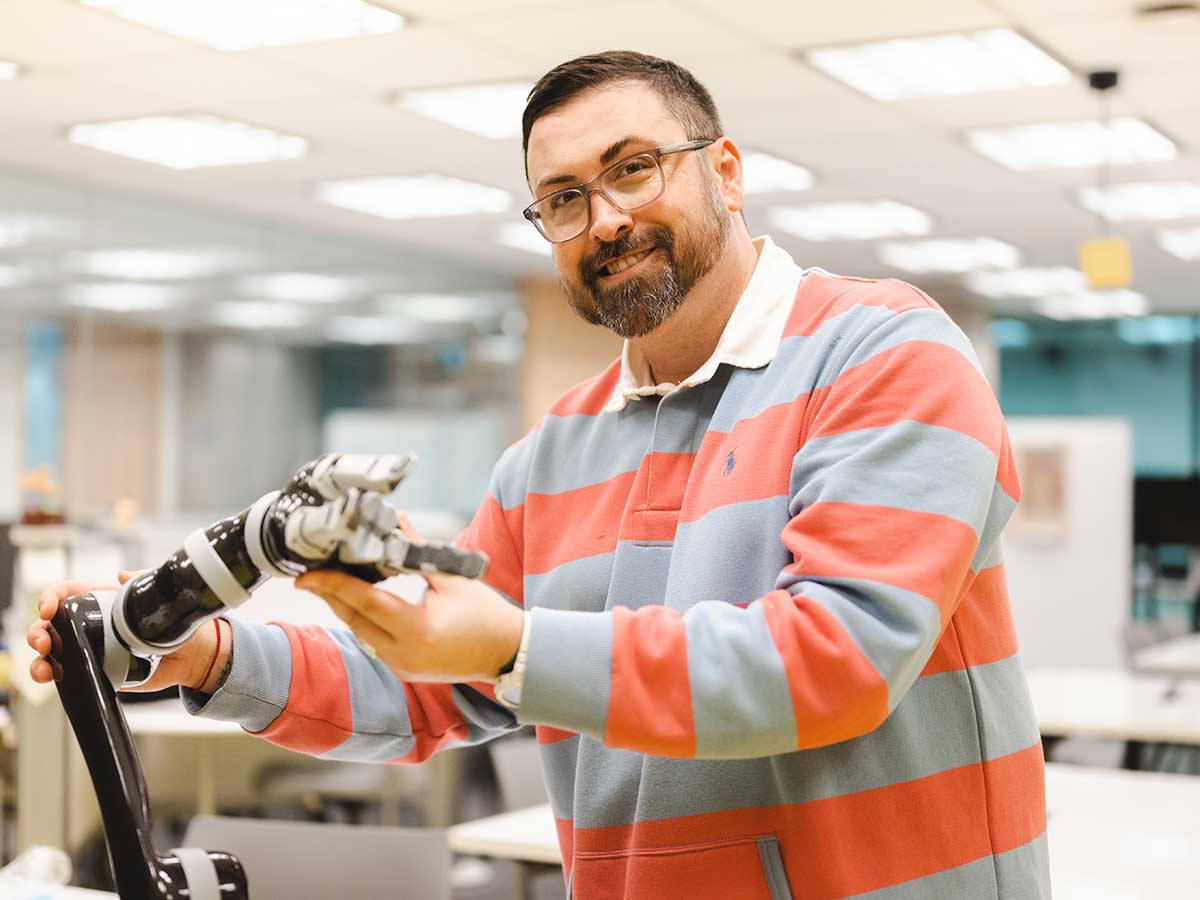With a little help from our robots
Adam Mazurick sees robots not as competitors but as powerful tools

Imagine there’s been an earthquake, or other natural disaster. First responders arrive on the scene—but their work is inherently dangerous. Fires may still be burning; buildings could be in danger of collapsing. “I don't want to send a firefighter into that environment,” says roboticist Adam Mazurick. “I’d much rather give the firefighter a joystick they can use to control an anthropomorphic robot, which can go in, look around, and relay back the information safely.”
Anthropomorphic: Described or thought of as having a human form or human attributes.
Mazurick specializes in the design of such robots, and the interfaces needed to control them. He’s currently pursuing his PhD in TMU’s Computational Public Safety Lab, where he works with computer science professor Alex Ferworn and Jimmy Tran, a postdoctoral researcher and the lab’s Research Technology Officer. At the same time, Mazurick has one foot in the industry, as he puts it; he’s a senior researcher at Wattpad, a Toronto-based multi-platform entertainment company, and he’s consulted for Facebook, Verizon and other companies.

The way Mazurick sees it, robots aren’t here to compete with us, to take our jobs, or (heaven forbid) to take over the world Terminator-style (although, as a big fan of the movies, he keeps a replica Terminator arm on a shelf in his office). Rather, he sees robots as incredibly powerful tools, which can work with us, allowing humans to accomplish more than they could on their own. And with an aging population, the need for such tools is growing. He envisions, for example, a robotic arm that can help a senior with mobility issues reach for an item on a grocery store shelf. Full-fledged anthropomorphic helper-robots—if you’re picturing C-3PO from Star Wars, you’re not too far off, Mazurick says—may be just over the horizon. “What used to be mere science fiction is now the near future,” he says.